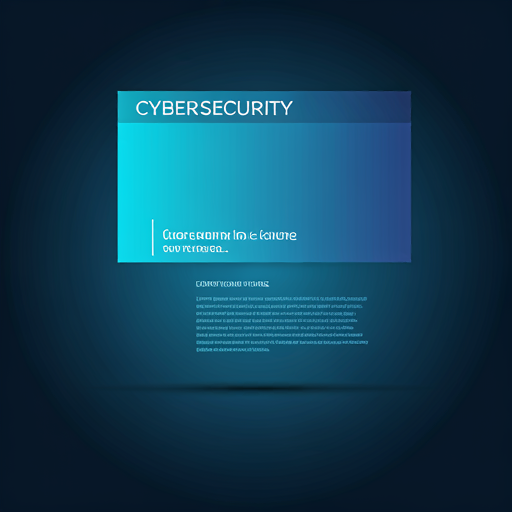Introduction to Cybersecurity in Finance
Importance of Cybersecurity in the Financial Sector
Cybersecurity is crucial in the financial sector due to the sensitive nature of financial data. Protecting this information is essential for maintaining trust and integrity. Financial institutions face constant threats from cybercriminals seeking to exploit vulnerabilities. These attacks can lead to significant financial losses and reputational damage. Security measures must be robust and continuously updated. It is vital to stay informed about emerging threats. Awareness is key in this ever-evolving landscape.
Overview of Cyber Threats in Cryptocurrency
Cyber threats in cryptocurrency include various atrack vectors. These can significantly impact asset security. Common threats are:
Each threat poses unique challenges. Awareness is essential for protection. Security measures must be proactive. Stay vigilant against these risks.
Common Cyber Threats Facing Cryptocurrency Users
Phishing Attacks and Social Engineering
Phishing attacks exploit human psychology to gain sensitive information. These attacks often involve deceptive emails or websites mimicking legitimate services. Users may unknowingly provide private keys or login credentials. This can lead to unauthorized access and financial loss. Social engineering tactics further complicate the number. Attackers manipulate individuals into revealing confidential data . Awareness and education are critical defenses. Knowledge is power in cybersecurity.
Malware and Ransomware Risks
Malware and ransomware pose significant risks to cryptocurrency users. These malicious software types can encrypt files or steal sensitive data. Once infected, users may face demands for payment in cryptocurrency to regain access. This creates a direct financial threat. Additionally, malware can compromise wallets and exchanges. Users must implement robust security measures. Prevention is better than cure.
Best Practices for Securing Cryptocurrency Assets
Using Hardware Wallets for Storage
Using hardware wallets for cryptocurrency storage enhances security significantly. These devices store private keys offline, reducing exposure to online threats. By keeping assets away from internet-connected devices, users mitigate risks of hacking. Additionally, hardware wallets often include encryption features. This adds another layer of protection. Regularly updating wallet firmware is essential. Staying informed is crucial for security.
Implementing Strong Passwords and Two-Factor Authentication
Implementing strong passwords is essential for securing cryptocurrency assets. He should use a combination of letters, numbers, and symbols. This complexity makes passwords harder to crack. Additionally, enabling two-factor authentication adds another security layer. It requires a second verification step, often through a mobile device. This significantly reduces the risk of unauthorized access. Awareness is key in cybersecurity.
Understanding Blockchain Security
How Blockchain Technology Enhances Security
Here are 10 trending article titles for a financial website based on the latest news and analysis: No input data
Potential Vulnerabilities in Blockchain Systems
Blockchain systems, while secure, have potential vulnerabilities. These include risks such as 51% attacks, where a single entity gains control over the majority of the network. This can lead to double spending and transaction manipulation. Additionally, smart contracts may contain coding errors, exposing users to exploits. Regular audits can help identify these weaknesses. Awareness is crucial for users.
Regulatory Frameworks and Compliance
Global Regulations Impacting Cryptocurrency Security
Global regulations significantly impact cryptocurrency security and compliance. Various jurisdictions have established frameworks to govern digital assets. These regulations often focus on anti-money laundering (AML) and know your customer (KYC) requirements. Compliance is essential for maintaining operational legitimacy. Non-compliance can lead to severe penalties. Understanding local laws is crucial for businesses. Knowledge is power in this landscape.
Best Practices for Compliance in the Crypto Space
Best practices for compliance in the crypto space include implementing robust KYC and AML procedures. He should regularly update these protocols to align with evolving regulations. Additionally, conducting thorough audits ensures adherence to legal standards. This minimizes the risk of penalties. Staying informed about regulatory changes is essential. Knowledge is key in compliance.
The Role of Insurance in Cryptocurrency Security
Types of Insurance Available for Crypto Assets
Types of insurance available for crypto assets include theft coverage, which protects against hacking incidents. He should also consider custody insurance for assets held by third parties. Additionally, some policies offer protection against fraud and operational errors. These insurance options mitigate financial risks. Understanding the terms is crucial for effective coverage. Knowledge is essential in asset protection.
Evaluating the Need for Insurance in Your Strategy
Evaluating the need for insurance in a cryptocurrency strategy is essential for risk management. He should assess the value of his assets and potential vulnerabilities. Understanding the specific risks associated with cryptocurrency is crucial. This includes theft, fraud, and market volatility. Insurance can provide a safety net against these threats. Awareness is vital for informed decision-making.
Future Trends in Cybersecurity for Finance
Emerging Technologies and Their Impact on Security
Emerging technologies significantly impact security in finance. Innovations like artificial intelligence enhance threat detection capabilities. He should consider how machine learning algorithms analyze patterns. These technologies can identify anomalies in real-time. Additionally, blockchain technology improves data integrity and transparency. Awareness of these advancements is essential.
Preparing for Future Cyber Threats in Cryptocurrency
Preparing for future cyber threats in cryptocurrency requires proactive measures. He should implement advanced security protocols to safeguard assets. Regularly updating software and systems is essential. This minimizes vulnerabilities to emerging threats. Additionally, conducting security audits can identify weaknesses. Awareness of potential risks is crucial. Knowledge is key in cybersecurity.

Leave a Reply